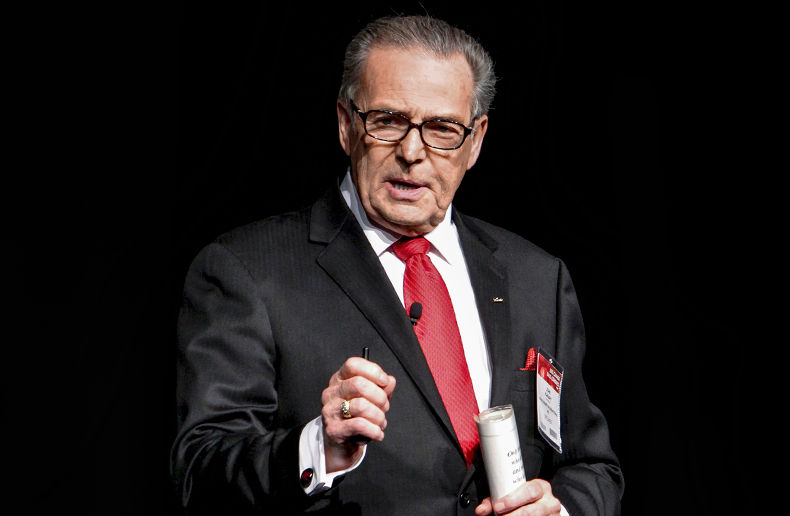The Quebec Superior Court has ruled that a man who used a universal life insurance policy to partially finance the purchase of a house must pay more than $1.3 million to the seller. Due to a shortage of funds in the side account, the seller had to pay premiums to keep the coverage in force. The situation ended in a lawsuit (2014 QCCS 3045), which also named the buyer’s financial advisor as a defendant.The case dates back to 1989, when Douglas Robinson placed a “for sale” sign in front of his home in Beaconsfield. The sale price was $1 million, and André Lefebvre wanted to buy it. After a series of offers and counter-offers, Lefebvre decided to try a course of action proposed by his financial advisor, Pierre Roy, owner of the financial services firm Lafortune & Associates (then Roy, Lafortune & Associates). Roy met the seller in the presence of his client and suggested he take out a universal life insurance policy on the life of Robinson, payable to his estate. This contract was to be used to partially finance the purchase of the house.
In 1992, Roy acted on Lefebvre’s behalf and sent an offer to this end to Robinson. The purchaser agreed to pay $400,000 when the deed of sale was signed, plus $217,500 in 5 years. He would also hold a universal life insurance policy on the life of Robinson for $600,000, with the proceeds payable to Robinson’s estate. The amount of insurance was to be indexed annually to a maximum of $1.2 million after 18 years, depending on how the markets performed. Premiums were expected to be paid from the investment account for life, but this promise is also based on market performance. The product was underwritten by Prudential of America, which was subsequently acquired by RBC Insurance.
The deal went sour when the funds accumulated in the policy were no longer sufficient to pay the premiums. The insurer guaranteed a minimum return of 4% on amounts deposited in the accumulation fund. The policy was supposed to pay for itself, but this was based on a projected annual return of 7.8%. In fact, the investment options in the policy earned real returns that were lower than expected.
Initial warning
In 2005, the court notes that Roy’s firm sent an initial warning to Lefebvre, telling him that $214,406 would be required to prevent the policy from lapsing. A year later, Lefebvre received another warning, this time from RBC Insurance, informing him that the policy would lapse on May 28, 2013. Lefebvre only notified Robinson of the situation in 2008, who in the meantime had been dealing with the death of his wife. Robinson then sent formal notices that went unanswered.
Faced with Lefebvre and Roy’s inaction, Robinson had to begin paying the premiums himself on 25 June 2013 in order to keep the policy in force. By the time the case came to trial, he had already paid $102,433.20. He demanded, among other things, that the defendants reimburse him for this amount.
Roy came under attack when both Robinson and Lefebvre argued that the premiums paid into the policy were supposed to be sufficient to keep the insurance in force. Now, however, the insurer is requiring very high additional premiums since at the time of trial Robinson was 80-years-old. For example, the premium required for this year is $111,329.11. In five years time, the annual premium will be $170,354.64
The policy in question is described as prepaid. This policy does not provide the kind of guarantees that would have prevented it from sinking. In his decision, Quebec Superior Court Judge Jean-François Michaud points out that, to avoid this situation, Lefebvre should have purchased a paid-up policy, and not prepaid one. He also notes that Lefebvre did not have the means to pay the approximately $463,000 premium that this kind of paid-up policy would have cost.
In addition to the premiums that he had to assume when the policy was in danger of lapsing, Robinson also wants to have the agreed-upon insurance from Lefebvre, Roy and his firm. As for Lefebvre, he holds Roy responsible for the situation, and brought his own lawsuit against him.
Stock market earnings
In his defence, Roy argued that Robinson and Lefebvre knew that premium payments depended on stock market earnings. Judge Michaud, however, did not accept his reasoning.
In his ruling, Judge Michaud determined that Lefebvre, Roy and his firm must pay Robinson $1,200,010, plus interest and additional indemnity. The court also ruled that Lefebvre, Roy, and his financial services firm are to reimburse Robinson for the $102.433.20 in premiums he had to pay out of his own pocket, along with interest and additional indemnity. The defendants must pay for legal costs as well, including an expert assessment that cost $18,449.
The court allowed Lefebvre’s third-party action against his financial advisor. The judgement says that Roy must compensate his client “for all amounts, in principal, interest, and costs that he will pay as a result of the judgement pronounced against him in the parent application.”











